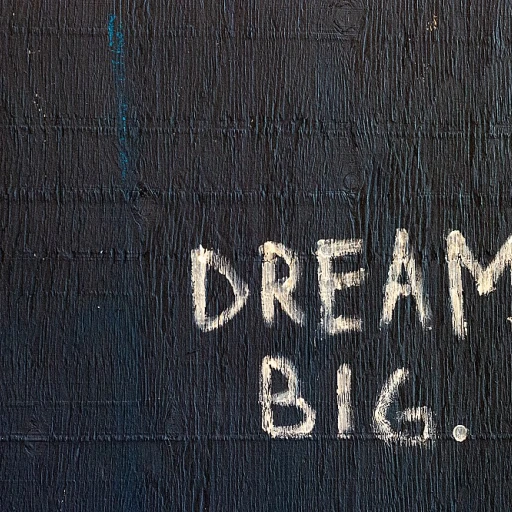
Understanding the role of learning and development in HR interviews
The Value of Learning and Development in HR Interviews
Learning and development (L&D) roles are becoming increasingly important in today’s human resources landscape. Whether you are applying for a learning specialist, instructional designer, or development manager position, understanding how these jobs contribute to the overall success of a company is essential during HR interviews. Recruiters want to see that you recognize the strategic impact of L&D, not just the day-to-day training tasks.
How L&D Roles Shape Organizational Growth
Companies invest in learning and development jobs to ensure their people have the skills needed to adapt and grow. As a learning development specialist or corporate trainer, your work directly influences employee performance, engagement, and retention. L&D professionals design and deliver training programs, support instructional design, and help build a culture of continuous improvement. This is true whether you are working as a development consultant, instructional designer, or director learning and development.
- Supporting business goals: L&D jobs align training initiatives with company objectives, making sure every program adds value.
- Enhancing employee experience: Good learning management improves job satisfaction and career progression.
- Ensuring compliance and health: Training development roles often include health and safety, privacy policy, and regulatory topics.
What Recruiters Look For
In HR interviews for learning development jobs, expect questions about how you have contributed to organizational success in previous roles. Recruiters may ask about your experience with instructional design, your approach as a learning developer, or your ability to measure the impact of training programs. Demonstrating a clear understanding of the company’s needs and showing how your skills as a development specialist or manager will help meet those needs is key.
If you want to learn more about the HR interview process for assistant roles, check out this guide on mastering the HR assistant interview process.
Key competencies recruiters seek for learning and development vacancies
What Recruiters Value in Learning and Development Candidates
When applying for learning and development jobs, understanding what recruiters look for is essential. Whether you are aiming for a learning specialist, instructional designer, or development manager position, certain competencies and qualities stand out. These are not just buzzwords in job postings—they reflect the real needs of companies seeking to build effective training and development programs.
- Instructional Design Skills: Companies want people who can design engaging and effective training. Experience with instructional design, e-learning tools, and content development is highly valued for roles like instructional designer or learning developer.
- Training Delivery: Being able to deliver training—whether in-person or virtually—is a must. Corporate trainers and development specialists should demonstrate good communication and facilitation skills.
- Analytical Thinking: Recruiters appreciate candidates who can assess training needs, measure learning outcomes, and use data to improve programs. This is important for roles such as learning development manager or director learning and development.
- Project Management: Managing multiple projects, meeting deadlines, and collaborating with different teams are key for success in development jobs. Experience as a development consultant or manager can highlight these abilities.
- Business Acumen: Understanding how learning initiatives align with company goals is crucial. L&D professionals should show they can support business strategy and contribute to organizational growth.
- Adaptability: The learning and development field evolves quickly. Being open to new technologies and approaches is a plus for any development specialist or learning manager.
- Stakeholder Management: Building relationships with managers, HR, and employees is part of the job. Good interpersonal skills help learning consultants and directors drive successful programs.
- Compliance and Privacy: Especially in the United States, understanding privacy policy and compliance requirements is important for those working in human resources and learning management roles.
Highlighting these competencies in your application and during interviews will set you apart from other candidates. If you want to learn more about the broader HR landscape and how these roles fit in, check out this resource on mastering the role of a human resources administrator.
Common interview questions for learning and development roles
What Interviewers Ask in Learning and Development Job Interviews
When applying for learning and development jobs, you can expect interviewers to focus on your practical experience, your approach to instructional design, and your ability to drive results. Whether you are aiming for a learning specialist, development manager, instructional designer, or corporate trainer position, the questions will often explore your technical skills, your understanding of adult learning principles, and your ability to align training with business goals.
- Describe your process for designing a new training program. Recruiters want to see how you approach needs analysis, content creation, and evaluation. They may ask for examples from your previous work as a learning developer or instructional design specialist.
- How do you measure the effectiveness of a learning intervention? Be ready to discuss metrics, feedback tools, and how you use data to improve future programs. This is especially relevant for roles like development consultant or director learning and development.
- Can you share an example of a challenging project in your learning development career? Interviewers are interested in your problem-solving skills and how you handle obstacles, such as limited resources or resistance to change.
- What learning technologies and platforms have you used? With the rise of learning management systems and digital training, companies want candidates who are comfortable with modern tools. Mention any experience with e-learning, virtual classrooms, or blended learning strategies.
- How do you ensure your training programs are inclusive and accessible? Diversity, equity, and inclusion are priorities in many organizations, especially in the United States. Be prepared to discuss how you adapt instructional materials for different audiences.
- How do you stay updated with trends in instructional design and learning development? Continuous learning is key for any development specialist or manager. Share how you keep your skills sharp and your knowledge current.
- How do you collaborate with subject matter experts or business leaders? L&D jobs often require working with people across the company. Highlight your communication and stakeholder management skills.
For those targeting senior roles like director learning and development or development manager, expect questions about strategy, budget management, and leading teams. If you are applying for jobs instructional or training development positions, you may be asked about your experience with compliance training, health and safety, or privacy policy requirements.
To get a sense of what real job postings are asking for, review recent listings for learning specialist, development consultant, or instructional designer roles. This will help you anticipate the competencies and scenarios you might be questioned about during your HR interview. For more on how law firms and other organizations implement effective human resource management practices, check out this guide to effective HR management practices.
Showcasing your experience and achievements
Highlighting Your Impact in Learning and Development
When you’re preparing for interviews for learning and development jobs, it’s essential to clearly communicate your experience and achievements. Recruiters want to see how your work as a learning development specialist, instructional designer, or development manager has made a real difference in your previous roles.- Quantify your results: Did your instructional design lead to improved training outcomes? For example, mention if your training program increased employee retention or boosted productivity by a measurable percentage.
- Showcase diverse projects: If you’ve worked as a corporate trainer, development consultant, or learning specialist, describe the variety of training and development programs you’ve managed. Include examples from different industries, such as health, finance, or technology, to show your adaptability.
- Emphasize collaboration: Learning and development jobs often require working with people across departments. Highlight how you partnered with managers, directors, or human resources teams to design and implement effective learning solutions.
- Demonstrate innovation: If you introduced new learning management systems, digital tools, or instructional methods, explain the impact. Did you help the company transition to online training or blended learning? Recruiters value candidates who drive positive change.
Presenting Your Role and Responsibilities
Be specific about your job titles and responsibilities. Whether you were a learning developer, development specialist, or director learning, clarify your scope of work. Did you lead a team, manage job postings for training development roles, or consult as a development consultant? This helps interviewers understand your level of responsibility and expertise.Linking Achievements to Business Goals
Connect your achievements to the company’s objectives. For example, if your instructional design reduced onboarding time for new hires, explain how this supported business growth. If you improved compliance training in the United States, mention how it helped meet regulatory requirements or privacy policy standards.Using Evidence and Feedback
Whenever possible, include feedback from stakeholders or data from post-training evaluations. Positive results from managers, employees, or external audits can strengthen your case. This evidence shows you’re not just good at your job—you deliver measurable value. By focusing on these aspects, you’ll present yourself as a strong candidate for learning and development roles, whether you’re aiming for a specialist, manager, or director position.Addressing challenges and gaps in your experience
Turning Gaps into Growth Stories
Many candidates worry about gaps or challenges in their experience when applying for learning and development jobs. Whether you are aiming for a learning development specialist, instructional designer, or development manager role, addressing these areas openly can actually work in your favor. Recruiters value honesty and a growth mindset, especially in L&D roles where continuous improvement is key.
- Be transparent: If you lack direct experience in a specific area, such as instructional design or learning management systems, acknowledge it. Then, share how you have taken steps to learn or adapt, such as online courses, volunteering, or shadowing a learning specialist or corporate trainer.
- Highlight transferable skills: Skills from other jobs, like project management, communication, or training development, are highly valued in L&D. Explain how these skills helped you deliver results, even if your previous job title was not directly related to learning development.
- Showcase adaptability: Companies appreciate candidates who can adapt to new tools and environments. If you have worked in different industries or with diverse teams, mention how this has prepared you for a development consultant or director learning role.
- Address employment gaps: If you took time off for health, family, or further education, briefly explain the reason and focus on what you learned during that period. For example, you might have developed new training materials, studied privacy policy updates, or improved your instructional design skills.
Demonstrating Problem-Solving in L&D
Learning and development jobs often involve overcoming obstacles, such as limited resources or resistance to change. Use real examples from your work as a learning developer, development specialist, or even as a manager in another field. Describe the challenge, your approach, and the outcome. This shows recruiters that you can handle setbacks and drive results, which is essential for roles like development manager or director learning.
Preparing for Questions About Gaps
Expect interviewers to ask about your experience with learning management systems, instructional design, or specific training development projects. Prepare concise, honest answers that include what you have done to bridge any gaps. If you are new to the United States job market or transitioning from another field, explain how your background brings a fresh perspective to L&D jobs instructional or development job postings.
Remember, every experience—whether as a development consultant, human resources manager, or corporate trainer—can contribute to your story. Focus on how you will use your unique background to add value to the company and its people.
Practical tips for preparing for your HR interview
Getting Ready for Your L&D Interview
Preparation is key for anyone aiming to secure learning and development jobs, whether you are targeting a role as a learning specialist, instructional designer, or development manager. Here are some practical steps to help you stand out during your HR interview:- Research the company’s approach to learning and development. Understand their learning management systems, training development programs, and how they support employee growth. This will help you tailor your answers and show you are genuinely interested in their culture and values.
- Review the job postings carefully. Identify the specific skills and competencies the company is seeking, such as instructional design, training delivery, or experience as a development consultant. Prepare examples from your own work that align with these requirements.
- Prepare to discuss your experience with instructional design and learning technologies. Many roles, from corporate trainer to director learning, require familiarity with digital tools and e-learning platforms. Be ready to talk about projects where you designed or delivered training using these technologies.
- Practice answering competency-based questions. Use the STAR method (Situation, Task, Action, Result) to structure your responses. This is especially useful for roles like learning developer, development specialist, or instructional designer, where clear examples of your impact are important.
- Showcase your ability to measure training effectiveness. Companies want to know that their investment in learning development leads to real results. Be prepared to discuss how you evaluate the success of your programs, whether through feedback, assessments, or business outcomes.
- Highlight your adaptability and willingness to learn. The field of human resources and L&D is always evolving. Demonstrate that you stay current with trends in instructional design, health and safety training, and privacy policy updates relevant to your work.
- Prepare thoughtful questions for the interviewer. Ask about the company’s development job career paths, support for professional growth, or how they handle challenges in training development. This shows you are proactive and invested in your own learning journey.













